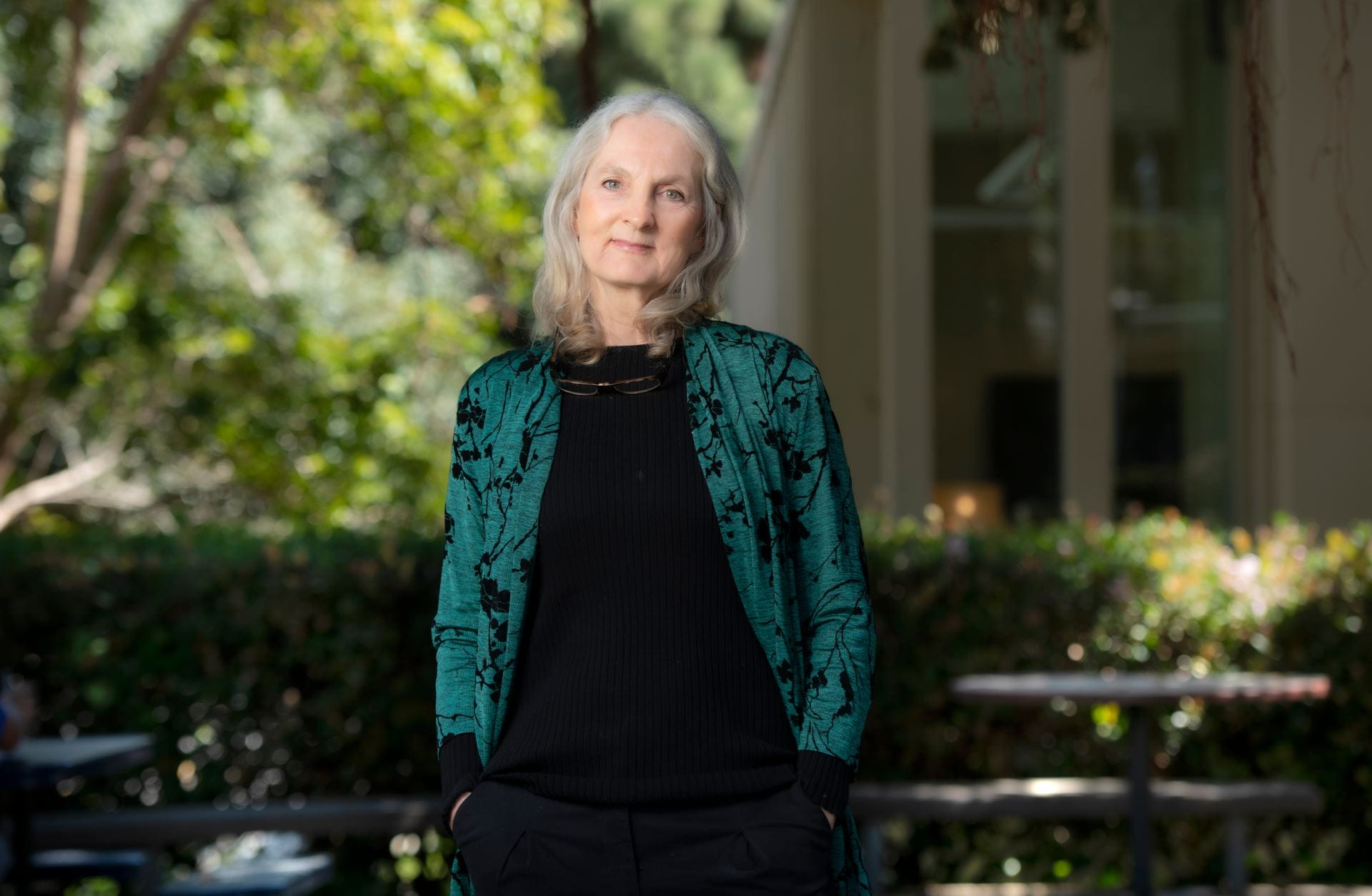UCI Study Examines Distorted Time Perception During Pandemic
May be an important risk factor to target with early interventions
 “We examined distortion in perceptions of time passing as COVID-19 spread across the country. This is an understudied yet common psychological phenomenon and is a risk factor for mental health challenges. Our findings suggest new avenues for research examining risk and resilience during protracted collective traumatic events,” said corresponding author E. Alison Holman, UCI professor of nursing. Steve Zylius / UCI Irvine, Calif., Aug. 23, 2022 — The passage of time was altered for many people during the COVID-19 pandemic, ranging from difficulty in keeping track of days of the week to feeling that the hours themselves rushed by or slowed down. In prior work, these distortions have been associated with persistent negative mental outcomes such as depression and anxiety following trauma, making them an important risk factor to target with early interventions, according to a study by University of California, Irvine researchers.
“We examined distortion in perceptions of time passing as COVID-19 spread across the country. This is an understudied yet common psychological phenomenon and is a risk factor for mental health challenges. Our findings suggest new avenues for research examining risk and resilience during protracted collective traumatic events,” said corresponding author E. Alison Holman, UCI professor of nursing. Steve Zylius / UCI Irvine, Calif., Aug. 23, 2022 — The passage of time was altered for many people during the COVID-19 pandemic, ranging from difficulty in keeping track of days of the week to feeling that the hours themselves rushed by or slowed down. In prior work, these distortions have been associated with persistent negative mental outcomes such as depression and anxiety following trauma, making them an important risk factor to target with early interventions, according to a study by University of California, Irvine researchers.
The study, recently published online in the journal Psychological Trauma: Theory, Research, Practice, and Policy, documents how pervasive the experience, known as “temporal disintegration” in psychiatric literature, was in the first six months of the pandemic. The team also found that pandemic-related secondary stresses such as daily COVID-19-related media exposure, school closures, lockdowns and financial difficulties were predictors of distortions in perceived time.
“Continuity between past experiences, present life and future hopes is critical to one’s well-being, and disruption of that synergy presents mental health challenges,” said corresponding author E. Alison Holman, UCI professor of nursing. “We were able to measure this in a nationally representative sample of Americans as they were experiencing a protracted collective trauma, which has never been done before. This study is the first to document the prevalence and early predictors of these time distortions. There are relatively new therapies that can be used to help people regain a more balanced sense of time, but if we don’t know who is in need of those services, we can’t provide that support.”
Researchers assessed results of responses regarding distorted time perceptions and other pandemic related experiences from a probability-based national sample of 5,661 participants from the National Opinion Online Research Center AmericaSpeak panel. Surveys were conducted during March 18-April 18, 2020 and Sept. 26-Oct. 26, 2020 with respondents who had completed a mental and physical health survey prior to the COVID-19 outbreak.
“Given that distortions in time perception are a risk factor for mental health problems, our findings have potential implications for public health. We are now looking at temporal disintegration, loneliness, and mental health outcomes over 18 months into the pandemic,” Holman said. “This will help us gain insight into how these common experiences during the pandemic work together, so we can better understand how to help people struggling with these challenges.”
The UCI team included Nickolas M. Jones, psychological sciences postdoctoral researcher; Roxane Cohen Silver, Distinguished Professor of psychological science, medicine and health; and Dana Rose Garfin, assistant adjunct professor of nursing and public health, who is now with the UCLA Fielding School of Public Health.
Funding for this work was provided by the U.S. National Science Foundation under grant numbers SES 2026337 and SES 2049932; and the National Institute on Minority Health and Health Disparities Award K01 MD013910.
About UCI’s Brilliant Future campaign: Publicly launched on Oct. 4, 2019, the Brilliant Future campaign aims to raise awareness and support for UCI. By engaging 75,000 alumni and garnering $2 billion in philanthropic investment, UCI seeks to reach new heights of excellence in student success, health and wellness, research and more. The Sue & Bill Gross School of Nursing plays a vital role in the success of the campaign. Learn more by visiting https://brilliantfuture.uci.edu/sue-and-bill-gross-school-of-nursing/.
About the University of California, Irvine: Founded in 1965, UCI is a member of the prestigious Association of American Universities and is ranked among the nation’s top 10 public universities by U.S. News & World Report. The campus has produced five Nobel laureates and is known for its academic achievement, premier research, innovation and anteater mascot. Led by Chancellor Howard Gillman, UCI has more than 36,000 students and offers 224 degree programs. It’s located in one of the world’s safest and most economically vibrant communities and is Orange County’s second-largest employer, contributing $7 billion annually to the local economy and $8 billion statewide. For more on UCI, visit www.uci.edu.
Media access: Radio programs/stations may, for a fee, use an on-campus ISDN line to interview UCI faculty and experts, subject to availability and university approval. For more UCI news, visit news.uci.edu. Additional resources for journalists may be found at communications.uci.edu/for-journalists.
Publication: E. Alison Holman, et al. Distortions in Time Perception During Collective Trauma: Insights From a National Longitudinal Study During the COVID-19 Pandemic. Psychological Trauma: Theory, Research, Practice, and Policy, (2023). DOI: 10.1037/tra0001326
Original Story Source: University of California - Irvine

 Alerts Sign-up
Alerts Sign-up